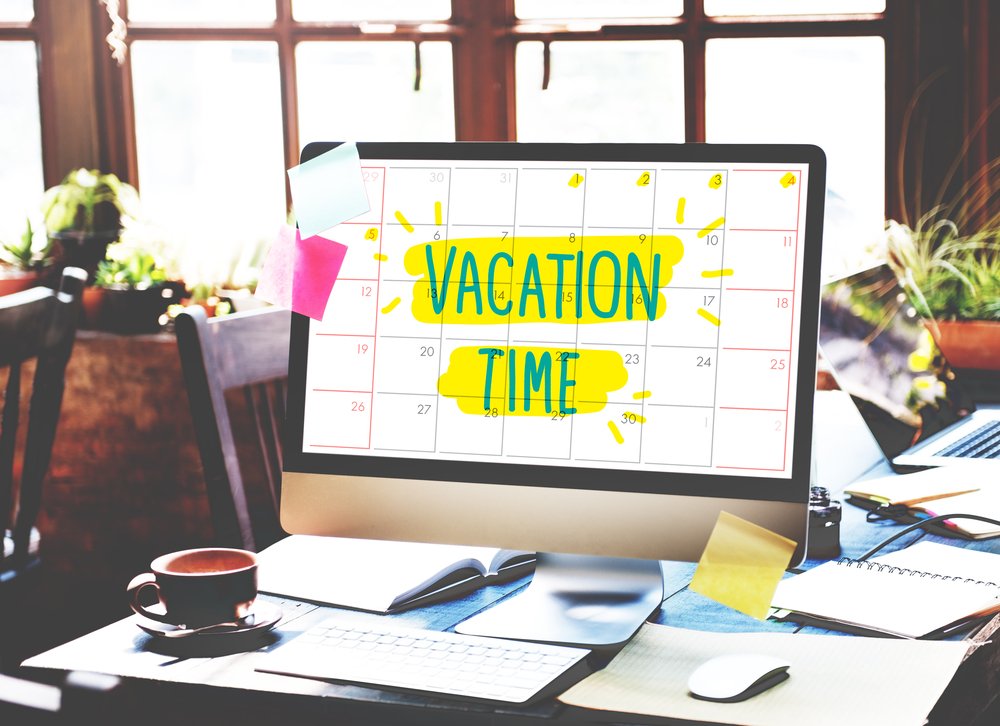Whether due to a scheduled vacation, an unplanned sick day, or a family member visiting from far away, we all occasionally take time off work to tend to our personal lives. In fact, stepping away from the office is actually good for you — it can prevent burnout and even boost your productivity and creativity.
Unfortunately, today’s emphasis on hustle culture causes nearly a quarter of Americans to avoid taking vacation time out of guilt, while 19 percent fear that they will be perceived as less committed to their job if they do. The issue is so common that there’s a name for it: “vacation shaming.”
The thing is, while our personal lives are constantly changing in response to internal and external factors — responsibilities at home, the well-being of friends and family, or how we’re feeling, to name a few — it can often feel as if what’s asked of us is fixed: that regardless of what’s going on in our personal lives, we must be able to flawlessly keep up with the demands of our jobs.
Not only is this unrealistic, it’s actually unhealthy.
As writer and habit coach Niklas Goeke writes: “For some reason, whenever I go to an event, a friend stops by, or the week is just generally slow, I still feel like I should get as much done as I usually do. Like I should create the same output, regardless of the time I take off. That’s impossible, of course. But it creates guilt, and that guilt is the real problem. As opposed to shame, it makes us want to step up… And so it may feel like focusing for one hour in the evening makes up for a bad day, but who wants to spend their entire life salvaging leftover scraps of time?”
The pressure to overcompensate for time off — whether that pressure is self-imposed or comes from your boss or peers — can create stress, negatively impact your health, and set you on the path to burnout (not to mention, extinguish any enjoyment in your work).
“Trying to balance competing priorities in your personal life with your professional life can be quite challenging,” C. Ellen Washington, Ph.D., associate professor of psychology at The Chicago School for Professional Psychology, tells Thrive. She says that the stress of trying to balance these sometimes conflicting responsibilities can actually backfire, causing people to miss more work, or eventually even quit their jobs.
Instead of driving yourself to burnout trying to make up for every minute spent out of the office, Goeke offers another solution: “Relentlessly forgive yourself.”
Forgive yourself when you make a choice that may not be compatible with today’s work culture, but feels right for you. Forgive yourself when you prioritize your personal journey over the office for a day, if that’s what you need.
“The reality is that people just shouldn’t feel guilty for utilizing vacation. In fact, there is more evidence to suggest that taking vacation time is beneficial for long-term well-being, motivation, and productivity, especially when employees can more fully detach from work during that vacation,” Matthew Grawitch, Ph.D., a Director of Strategic Research at Saint Louis University, tells Thrive. “They should feel more guilty if they don’t take a vacation because when they fail to do so, they are putting their own long-term motivation, work quality, and productivity in jeopardy.”
Of course, that’s not to say that you should abandon your work ethic, or be unnecessarily absent from your job. But it’s a valuable reminder that when other areas of your life clamor for focus, it’s OK to prioritize them.
Follow us here and subscribe here for all the latest news on how you can keep Thriving.
Stay up to date or catch-up on all our podcasts with Arianna Huffington here.


